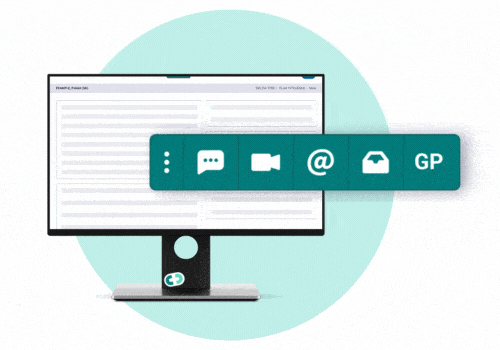WebGP to reach millions

A GP e-consultation and self-help web service expects to reach 2 million patients by this time next year.
WebGP was started by doctors at the Hurley GP group. Hosted on a practice’s website, it brings together a range of self-help tools including video content created by some of the group’s GPs.
Also symptom checkers and advice on the various places a patient can get help, such as a pharmacist or NHS 111 or an available app.
A registered patient can also fill out an e-consultation form available for 100 common general practice scenarios and symptoms, which is sent to their practice for review by a GP.
Dr Arvind Madan, chief executive of Hurley Innovations, told a recent Wessex LMC meeting that the project to design a system to redirect patient demand to other services started three years ago.
It was driven by the group’s inability to deal with demand and attracted some support from NHS England.
“We wanted to see how we could disrupt the traditional model and start using a click-first approach,” he told the meeting in Southampton. “Our focus was on making our workload more manageable.”
Twenty practices were part of a pilot of Web GP which ran from August 2013 to March 2014.
Madan said results revealed there were nine self-help interactions for every e-consult received and a saving of three appointment requests per e-consult. Overall, 24,000 appointments were saved.
Indications were that patients with certain conditions related to mental and sexual health presented sooner and patients were more willing to seek advice on ‘embarrassing’ issues online.
He said the key thing is that the service did not open another door for demand as only 3% of patients who used the tools said that had they not been offered them, they would have done nothing.
In contrast, 14% said they would have gone to an urgent care centre, which is potentially a large saving if they are directed elsewhere, he explained.
A Peckham walk-in centre was getting 30,000-35,000 patient walk-ins a year, which has reduced to 18,000 since introducing the online service.
“Patients are desperate not to come in if they can avoid it and often they’re not sure they should even be there,” Madan explained.
“Hopefully we are culling fit young people out of waiting rooms who don’t want to be there anyway. But that’s the start of the journey as I see a lot of fertile ground around the management of long term conditions.”
Madan said Hurley is selling the system to individual practices as well as CCGs and primary care challenge fund sites.
Today, 78 practices use the system and a further 73 are “mobilising”, including 11 practices in rural parts of Scotland where patients are often moved around at great expense for minor treatments.
The company expects that by this time next year, around two million people will have access to webGP.
WebGP is also working with EMIS on the possibility of including integration into Emis practice websites, which will include the ability for patients to use their personal access code, push eConsults into workflow and possibly autopolulate elements of the e-consult into the electronic patient record.
Madan said the e-consult forms are currently sent to practices via email, usually into a dedicated inbox as a pdf attachment. Practices have different ways of getting these to GPs for review.
At Hurley Group, doctors were initially blocked off for one face-to-face patient appointment if they dealt with three e-consults and this has now gone down to two, relieving pressure on busy GPs as e-consults generally take three minutes to complete.
Within his group they have found that in 40% of cases the GP feels confident enough to issue a prescription without any further information, in 20% of cases they need to call the patient for some more details before making their decision and in 40% the GP recommends that the patient comes in for an appointment.
Patients are re-contacted via phone, usually by reception staff, as a way of verifying identity and ensuring the outcome of the consult is received.
The company is working on its next set of e-consultation forms, based partly on what patients are searching for in the symptoms area.
Patients must be registered with the practice, be over 18 and confirm that they do not believe their problem is medically urgent to use the service.
Red flags appear if patients put in certain answers to advise them to seek urgent medical attention.




